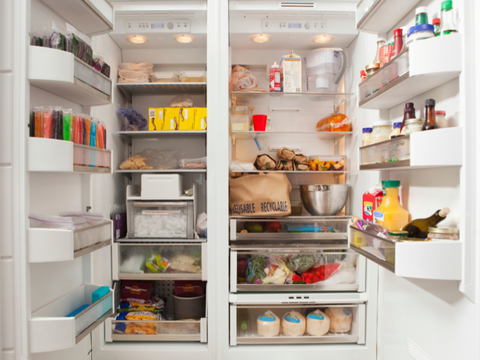Advantages of Storing Your Refrigerator Outdoors
1. Extra storage space: Storing your refrigerator outside can provide additional storage space for drinks, grilled items, and other foods without crowding the indoor refrigerator. This is especially useful during parties or get-togethers when you need extra space to cool drinks and food.2. Convenience: If you often hold outdoor parties, having a refrigerator outside will be very convenient. You can easily enjoy a cold drink or food without having to run back and forth to the kitchen.

Disadvantages of Storing Your Refrigerator Outdoors
1. Weather conditions: The refrigerator is designed for indoor use and cannot withstand harsh weather conditions. Extreme temperatures, whether hot or cold, can affect your refrigerator's efficiency. In hot weather, refrigerators have to work harder to keep items cool, using more energy. Extremely cold weather can also cause your refrigerator to shut down.
2. Increased energy consumption: As mentioned above, running a refrigerator under extreme conditions consumes more energy, leading to higher electricity bills.
3. Potential Damage: In addition to weather conditions, outdoor refrigerators are exposed to dust, insects, and other potential hazards that can cause damage. This can lead to expensive repairs or even replacement.
How to Safely Store a Refrigerator Outdoors

If you still decide to store your refrigerator outside, consider these tips:
1. Location: Choose a location away from direct sunlight and rain. This will help protect the refrigerator from extreme weather conditions.
2. Lid: Invest in a waterproof and durable lid to protect your refrigerator when not in use.
3. Regular maintenance: Clean and maintain the refrigerator regularly to prevent damage caused by dust and insects.
4. Insulation: Consider adding extra insulation to your refrigerator to help it maintain lower temperatures without using additional energy.
In conclusion, while storing a refrigerator outdoors does come with its own set of challenges, with careful planning and proper maintenance, it can be done. Before deciding whether to store your refrigerator outdoors, it's important to weigh the pros and cons. Always remember to keep an eye on your equipment for any signs of damage or loss of efficiency.


















